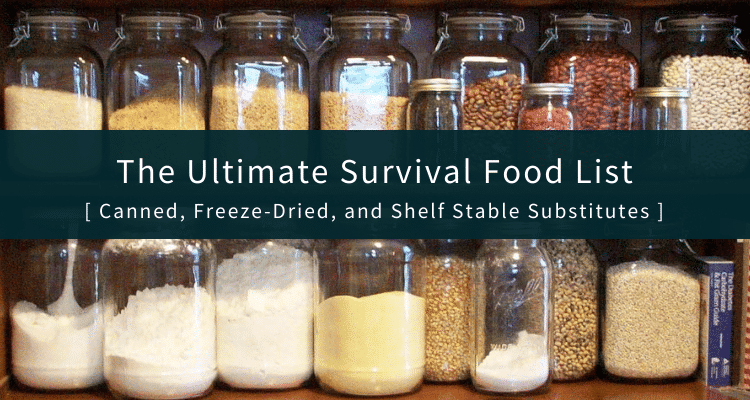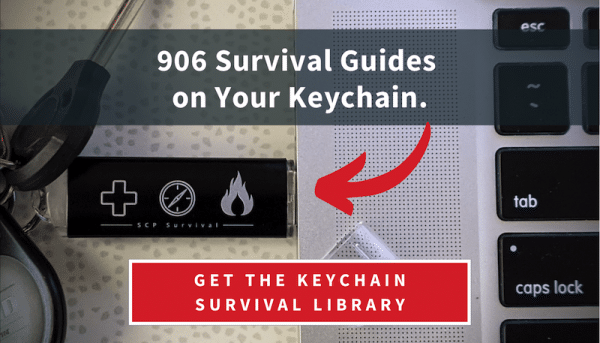Here is a short list of companies with whom I've done business. Through the years I’ve learned who makes all the stuff preppers buy. Whenever possible I buy directly from the producers and manufacturers, at times you can get great prices on production closeouts or excess production runs.
Food Storage Gear
Sorbent Systems – Manufacturer, Mylar bags. L.A. They produce 70% of the foil bags at the grocery store. They also manufacture quality mylar bags for long term food storage. For the past 20 years their products have been retailed by LDS centers and just about anyone else on the net dealing with food storage. They also make a great sealer for their bags. http://www.sorbentsystems.com
US Plastic Corporation – Manufacturer, anything from food grade buckets, containers, water tight lids to… Oklahoma http://www.usplastic.com
Desiccare – Manufacturer, Oxygen and Moisture Absorbers. near Meridian MS Desiccare, Inc.Desiccare, Inc.
General food and survival supplies
Walton Feed, Inc. Montpelier, ID 83254 (their portal is now rainy day foods) Biggest and oldest dehydrated food manufacturer. Most other suppliers on the net buy from Walton Feed and even use their stock numbers. A no frills website, just a spread sheet.
Rainy Day Foods - Food Storage - Wheat - Dehydrated & Freeze Dried Foods - Emergency Supplies
Survivor Industries – Manufacturer, Mainstay Emergency Rations.
SOS Food Lab Products – the #1 choice for Emergency Food Bars They stand up to exposure far better than MRE’s.
Pleasant Hill Grain
Grain Mills, Bosch Mixers, Wheat Flour Grinders, Nutrimills, and much more Great grain and meat grinder’s, lots of goodies. LDS, The Mormon church requires all families to have a year’s supply of food and have done so for decades. They are the experts. Until last year you could drive to a LDS distribution center in Nashville and buy almost anything. The prepper demand became so high that center stopped selling to none LDS. You can still order from Pleasant Hill.
Short list of other similar suppliers
Nitro-pak - http://www.nitro-pak.com/ Foods
Mountain House - Freeze Dried Food - Mountain House Foods
Disaster Necessities - Disaster Necessities: Emergency Preparedness, Survival Supplies & Food Storage The Whole gambit.
Old fashioned hardware on the internet.
Lehman’s Hardware Ohio, a bit pricey though.
http://www.lehmans.com
Gempler’s
http://www.gemplers.com
Upholstery & Leather Stitching
Ansaldi & Sons Upholstery – industrial needles and threads of all types. Get yourself an Osborne No. 413 Automatic Awl, a must. Can be purchased from many places including amazon.
Home - Ansaldi Furniture Hardware Quality Furniture Hardware Since 1957
Rough Country Outfitters Supply
Everything needed for outfitting in rough country. Medical kits, camping, travel with horse and mule. Portable Stoves, Great Medical Kits, rigged for travel!
Outfitters Supply | Tack, Saddles, Horse Packing Gear, Trail Riding Equipment | TrailMax
Stoves/Cooking I used to drive by both these places monthly and often shopped at the company stores.
US Stove Company, South Pittsburg TN. US Stove Company | Wood Stoves | Gas Stoves | Furnaces | Outdoor Living
“Lodge Cast Iron Cookware”, I called a couple of years ago and they still sell “seconds” at the factory. Home Just across the TN state line.
Rope and Rigging
Knot & Rope Supply
Best Selection of Cut-to-Length Rope - Knot & Rope Supply
Trapping, Pre-made Snares by the dozen, Fishing
Memphis Net & Twine – Fishing nets made to order
Fishing & Sports Nets | Memphis Net & Twine
Kaatz Bros – Snares made to order. Great guys, any request considered and advice freely given.
Kaatz Bros. Lures - Trapping Supplies, Animal Traps, Lures, Baits, Urines, and Videos
Snare Shop – Snares made to order, special preps not a problem.
The Snare Shop - Snares, Lures, Hunting, Fishing, Archery
Note on trapping: It’d take 2 pack animals to carry 75 traps and assorted gear. 75 snares and gear would fit in 2 five gallon buckets and weigh less than 25 pounds. Dealer’s choice!
Information
Where there is no Doctor
Free download - Complete medical book supplied to villages and communities in the third world. Written for non professionals to use. 600+ pages Books and Resources - Hesperian Health Guides
Mother Earth News 40 years of back issues and articles on homesteading and living off the grid. MOTHER EARTH NEWS | The Original Guide to Living Wisely
----------------------------------------------------------------------
They say necessity is the father of invention. More appropriate to the topic would be - Lack of funds drives the resourcefulness of those who would be self reliant. You’d be amazed how simple many seemingly complex items actually are. Take oxygen absorbers for instance. Something most people would consider a complex “purchase item”.
They are basically perforated paper containing fine iron shavings. In the presence of oxygen iron begins to “rust” forming iron oxide. It literally absorbs oxygen over time from the air around it.
Waste not want not… used absorbers, iron oxide, used in paint, medicine, welding and of course the military can adapt anything… thermite…
Edit to add.. I've used this list over 10 years. The links are still good, checked those. But some things about how they do business may have changed, just be aware...
Food Storage Gear
Sorbent Systems – Manufacturer, Mylar bags. L.A. They produce 70% of the foil bags at the grocery store. They also manufacture quality mylar bags for long term food storage. For the past 20 years their products have been retailed by LDS centers and just about anyone else on the net dealing with food storage. They also make a great sealer for their bags. http://www.sorbentsystems.com
US Plastic Corporation – Manufacturer, anything from food grade buckets, containers, water tight lids to… Oklahoma http://www.usplastic.com
Desiccare – Manufacturer, Oxygen and Moisture Absorbers. near Meridian MS Desiccare, Inc.Desiccare, Inc.
General food and survival supplies
Walton Feed, Inc. Montpelier, ID 83254 (their portal is now rainy day foods) Biggest and oldest dehydrated food manufacturer. Most other suppliers on the net buy from Walton Feed and even use their stock numbers. A no frills website, just a spread sheet.
Rainy Day Foods - Food Storage - Wheat - Dehydrated & Freeze Dried Foods - Emergency Supplies
Survivor Industries – Manufacturer, Mainstay Emergency Rations.
SOS Food Lab Products – the #1 choice for Emergency Food Bars They stand up to exposure far better than MRE’s.
Pleasant Hill Grain
Grain Mills, Bosch Mixers, Wheat Flour Grinders, Nutrimills, and much more Great grain and meat grinder’s, lots of goodies. LDS, The Mormon church requires all families to have a year’s supply of food and have done so for decades. They are the experts. Until last year you could drive to a LDS distribution center in Nashville and buy almost anything. The prepper demand became so high that center stopped selling to none LDS. You can still order from Pleasant Hill.
Short list of other similar suppliers
Nitro-pak - http://www.nitro-pak.com/ Foods
Mountain House - Freeze Dried Food - Mountain House Foods
Disaster Necessities - Disaster Necessities: Emergency Preparedness, Survival Supplies & Food Storage The Whole gambit.
Old fashioned hardware on the internet.
Lehman’s Hardware Ohio, a bit pricey though.
http://www.lehmans.com
Gempler’s
http://www.gemplers.com
Upholstery & Leather Stitching
Ansaldi & Sons Upholstery – industrial needles and threads of all types. Get yourself an Osborne No. 413 Automatic Awl, a must. Can be purchased from many places including amazon.
Home - Ansaldi Furniture Hardware Quality Furniture Hardware Since 1957
Rough Country Outfitters Supply
Everything needed for outfitting in rough country. Medical kits, camping, travel with horse and mule. Portable Stoves, Great Medical Kits, rigged for travel!
Outfitters Supply | Tack, Saddles, Horse Packing Gear, Trail Riding Equipment | TrailMax
Stoves/Cooking I used to drive by both these places monthly and often shopped at the company stores.
US Stove Company, South Pittsburg TN. US Stove Company | Wood Stoves | Gas Stoves | Furnaces | Outdoor Living
“Lodge Cast Iron Cookware”, I called a couple of years ago and they still sell “seconds” at the factory. Home Just across the TN state line.
Rope and Rigging
Knot & Rope Supply
Best Selection of Cut-to-Length Rope - Knot & Rope Supply
Trapping, Pre-made Snares by the dozen, Fishing
Memphis Net & Twine – Fishing nets made to order
Fishing & Sports Nets | Memphis Net & Twine
Kaatz Bros – Snares made to order. Great guys, any request considered and advice freely given.
Kaatz Bros. Lures - Trapping Supplies, Animal Traps, Lures, Baits, Urines, and Videos
Snare Shop – Snares made to order, special preps not a problem.
The Snare Shop - Snares, Lures, Hunting, Fishing, Archery
Note on trapping: It’d take 2 pack animals to carry 75 traps and assorted gear. 75 snares and gear would fit in 2 five gallon buckets and weigh less than 25 pounds. Dealer’s choice!
Information
Where there is no Doctor
Free download - Complete medical book supplied to villages and communities in the third world. Written for non professionals to use. 600+ pages Books and Resources - Hesperian Health Guides
Mother Earth News 40 years of back issues and articles on homesteading and living off the grid. MOTHER EARTH NEWS | The Original Guide to Living Wisely
----------------------------------------------------------------------
They say necessity is the father of invention. More appropriate to the topic would be - Lack of funds drives the resourcefulness of those who would be self reliant. You’d be amazed how simple many seemingly complex items actually are. Take oxygen absorbers for instance. Something most people would consider a complex “purchase item”.
They are basically perforated paper containing fine iron shavings. In the presence of oxygen iron begins to “rust” forming iron oxide. It literally absorbs oxygen over time from the air around it.
Waste not want not… used absorbers, iron oxide, used in paint, medicine, welding and of course the military can adapt anything… thermite…
Edit to add.. I've used this list over 10 years. The links are still good, checked those. But some things about how they do business may have changed, just be aware...
Last edited:





